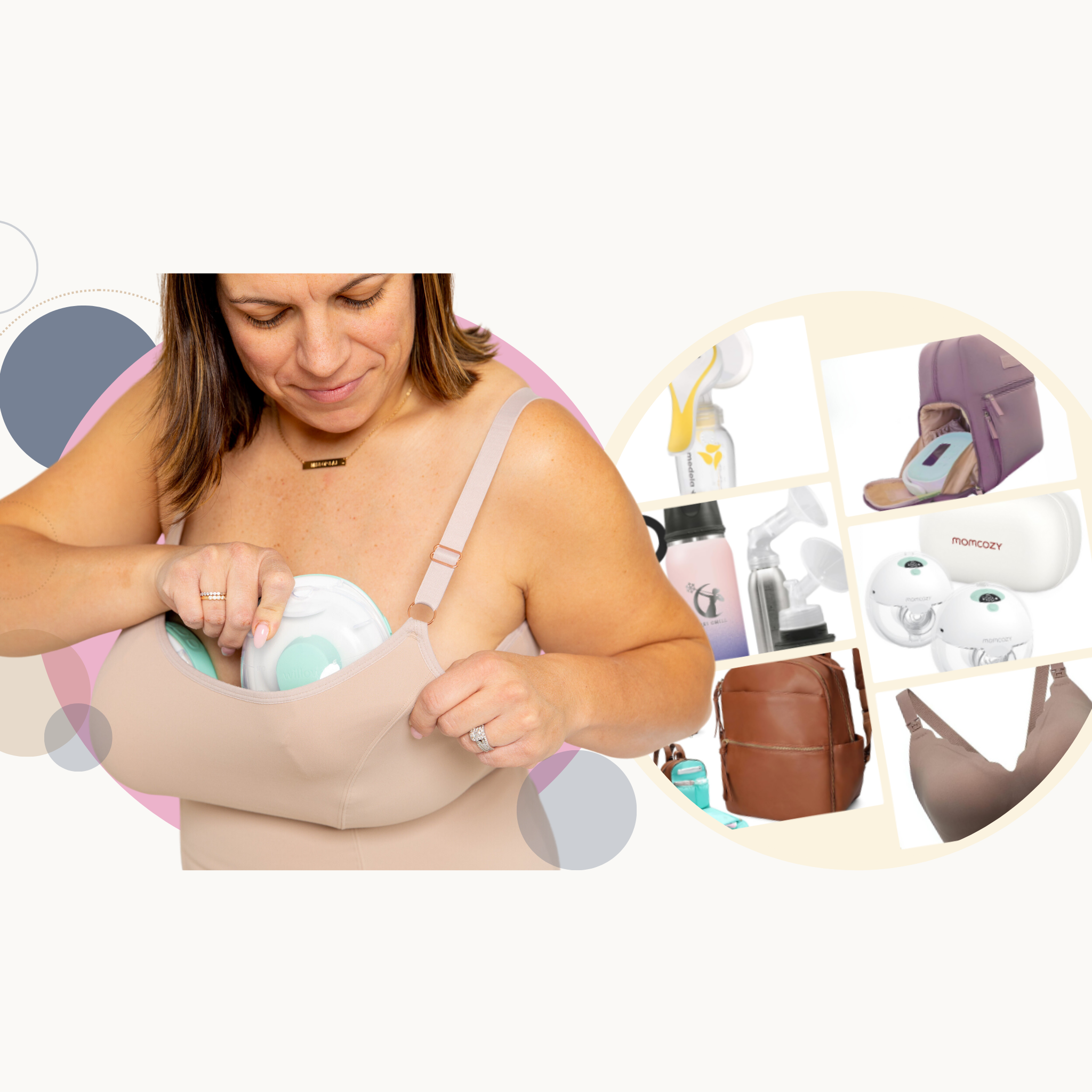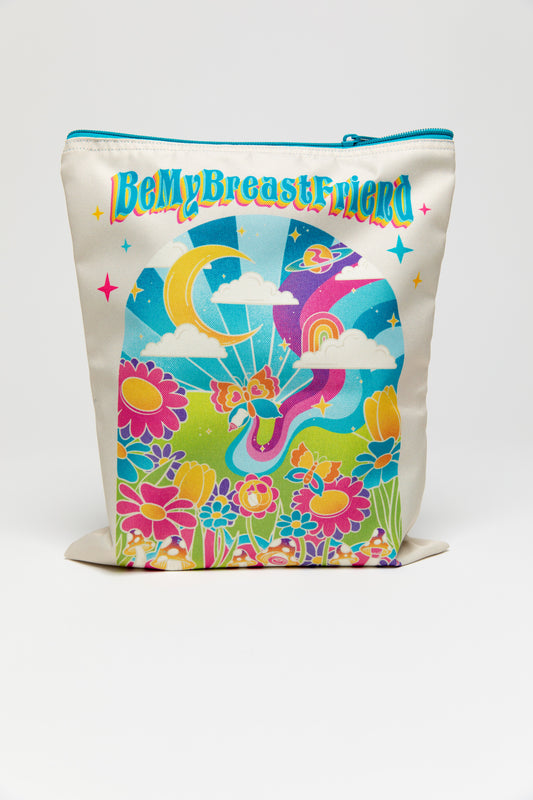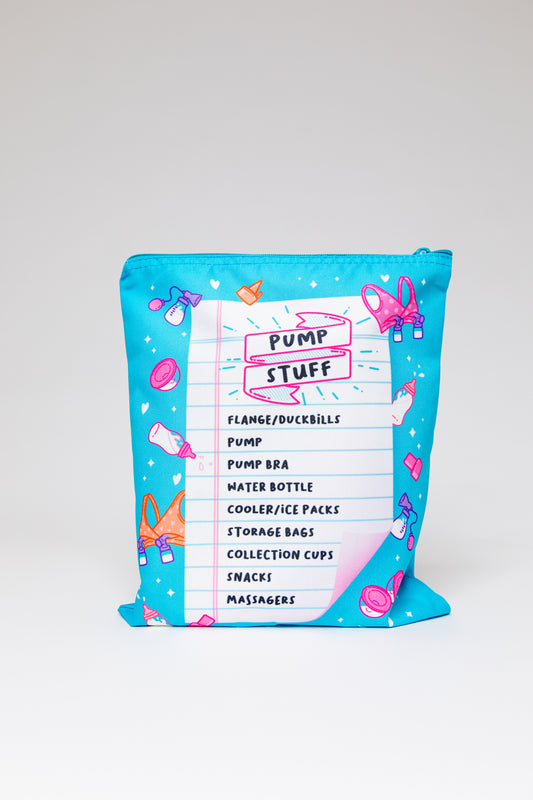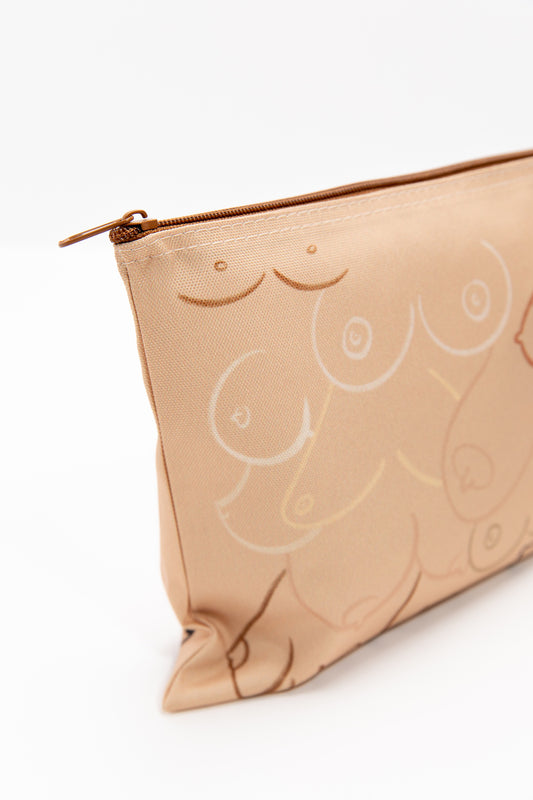
No, I’m not talking about the headaches from your toddler’s screaming tantrums when you're freshly postpartum—though trust me, those headaches are 100% real! This is about the sneaky, irritating headaches that seem to come out of nowhere. You’ve just gone through pregnancy, and now you’re breastfeeding. And let me tell you, while your body is focused on keeping that tiny human alive, it’s also throwing you a few curveballs.
So, can breastfeeding cause headaches? Short answer: Yes, it can. But it’s a little more complicated than that. Let’s dive into the nitty-gritty of what’s happening in your body and why you might be dealing with headaches as a new breastfeeding mom.
Your Body is in a Transition Period
Here’s the truth—once you transition from pregnant to breastfeeding, your world goes through a pretty significant change. Whether you're nursing, pumping, or a bit of both, your body becomes a 24/7 snack bar, and all your focus is on your baby. But while you’re making sure your little one is well-fed and happy, you might be forgetting to keep an eye on yourself. So, yes, there are side effects to breastfeeding, and headaches can be one of them.
If you’ve been getting those dreaded severe headaches, you’re not alone. Many postpartum women experience them thanks to everything from hormonal changes to good ol’ lack of sleep. But there’s more to it than just exhaustion. Sometimes, headaches are your body’s way of telling you it’s time to start taking better care of yourself.
Why Breastfeeding Can Trigger Headaches

Here are some potential causes for those pesky postpartum migraines or mild to moderate headaches:
1. Hormonal Fluctuations
Your hormones are doing the cha-cha after birth, especially your estrogen levels. You go from super high levels during pregnancy to a sharp drop once the placenta is delivered. This drop in hormone levels can trigger migraine headaches, especially in moms who are prone to them.
2. Dehydration
You lose a lot of fluids while breastfeeding, and if you’re not guzzling down enough water, you’ll likely end up with a tension headache. Keep that water bottle handy and aim for at least eight glasses of plenty of water a day—trust me, it’s a game-changer. Need some accountability? Put your partner in charge of refilling your cute water bottle and tracking your intake!
3. Lack of Sleep
Remember those days when you would stay up late studying for a test and wake up with a massive headache? Same thing here. New baby = sleep deprivation. There’s no way around it. But sleep is crucial for preventing primary headaches like cluster headaches and tension-type headaches. Unfortunately, getting enough sleep as a new mom can feel impossible, but do what you can. Squeeze in naps when your baby sleeps, and ask for help from a family member if needed.
If you've been exclusively nursing, pumping is a great way to allow your partner to do some of the middle of the night feedings in the early days if done in moderation and with proper tools and guidance. Need some more information on getting started with pumping? Download my Breastfeeding Beyond the Boob Guide to get started with all things pumping and combination feeding!
4. Stress and Fatigue
Breastfeeding can be such a beautiful experience, but it can also be physically and emotionally draining. The constant demand on your body can lead to frequent headaches. Don’t forget to give yourself a break for some self care. Stress management and relaxation techniques like deep breathing, stretching, or even a quick nap can make a big difference.
The Migraine-Breastfeeding Connection
If you’re prone to migraine attacks, breastfeeding could actually bring some relief—sort of. According to the American Migraine Foundation, the days and weeks right after birth can be tough for moms who suffer from migraine headaches. Estrogen levels drop alongside other hormonal changes that trigger migraines. But breastfeeding introduces lactational amenorrhea, a fancy way of saying you might stop having periods for a while, which could stabilize your hormones and reduce migraines.
Just be aware that when your menstrual cycle returns, your migraine attacks may return with a vengeance. Basically, if you are a frequent migraine sufferer, know that changes of any kind can be challenging. Birth and breastfeeding are no exception.
Acceptable Medications and Remedies
Can breastfeeding cause headaches? Yes, but you don’t have to suffer through them. There are both medications and natural remedies that can help.

Safe Medications:
- Acetaminophen (Tylenol): A great first choice for pain relief, and it’s safe to use while breastfeeding.
- Ibuprofen (Advil, Motrin): Another go-to for many breastfeeding moms, though it's not safe to use while pregnant.
- Beta-blockers: These can help prevent migraines in some women.
Make sure to talk to your healthcare provider before taking any medication. For more information on medications while breastfeeding, check out my blog post Taking Medications While Breastfeeding.
Natural Remedies:
If meds aren’t your thing, there are natural remedies you can try:
- Hydrate, hydrate, hydrate: As I mentioned, keep that glass of water filled up all day everyday.
- Sufficient rest: Easier said than done, but sleep deprivation is a major headache trigger. Get rest whenever you can.
- Relaxation techniques: Meditation, deep breathing, or yoga can help relieve stress and prevent postpartum migraines.
- Magnesium supplements: Some moms find relief with magnesium. Just be sure to ask your doctor first.
- Balanced diet: Maintain your energy and avoid dips in blood sugar levels. Eating well can help prevent headaches, and your milk production will thank you!
Postpartum Headaches: What’s Normal and What’s Not
It’s not just breastfeeding that can cause headaches. The postpartum period in general comes with its own headache-inducing set of challenges. One study found that 39% of postpartum women experience headaches within the first week after delivery. These headaches fall into two main categories:
1. Primary headaches, such as tension-type headaches or migraine headaches.
2. Secondary headaches, caused by an underlying condition like preeclampsia, postdural puncture headache, or even a blood clot.
If you’re dealing with persistent headaches and suspect there may be something abnormal going on, it’s important to seek medical care. Sometimes headaches are just a nuisance, but they can also be a sign of a more serious condition, like gestational hypertension or high blood pressure. If you have sharp pain, blurred vision, or feel lightheaded, call your doctor immediately.
Beyond the Headaches
Breastfeeding is no joke, and the transition into the fourth trimester can be a wild ride. But there are ways to make it smoother. Here are some of my recovery must-haves for new moms from my Amazon storefront:
Final Thoughts
So, can breastfeeding cause headaches? Yes, but it’s often more about what’s happening around breastfeeding—hormonal fluctuations, lack of sleep, and dehydration. While breastfeeding can be an amazing bonding experience with your baby, you can't forget to look after yourself too. Keep hydrated, get rest when you can, and don’t hesitate to consult with your healthcare professionals for any persistent headaches or other concerns. That's what they are there for!
Want to learn more about maternal health? This episode is for you!
-
Resources:
https://www.healthline.com/health/pregnancy/postpartum-headaches





